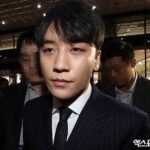The foreign users of Naver Map, the map service of South Korea’s online platform giant Naver Corp., have a 30% increase from last year.
Naver Map boasts nearly three times as many users as Google Maps, the world’s largest map application.
According to Naver on Sunday, the average daily active users (DAU) of Naver Map in foreign languages increased by 30.8% in August compared to last year.
While Naver has not disclosed the exact number of DAUs, market research firm IGAWorks estimates that the app had around 6.894 million DAUs last month.
Industry estimates suggest that 20% of these users access the app in a foreign language.
Naver Map continues to dominate the domestic travel and transportation app market in South Korea. As of July, 62% of all travel and transportation app users in the country were using Naver Map, far ahead of Tmap (40%), Kakao Map (26%), and Google Maps (22%).
A March survey by the Korea Tourism Organization further highlighted Naver Map’s popularity among foreign visitors to Korea. 56.2% of them used it, compared to 33.9% who used Google Maps.
Naver has recently expanded its multilingual support, adding more detailed information in English, Chinese, and Japanese.
This includes keyword reviews, business hours, takeout options, reservations, pet-friendly amenities, and group availability.
The company plans to extend this support to include features like location filters and comprehensive reviews.
In July, Naver enhanced its navigation features for Korean users, adding disaster information and a CCTV feature to view accident scenes in real time.
By Ju-Hyun Lee
deep@hankyung.com














